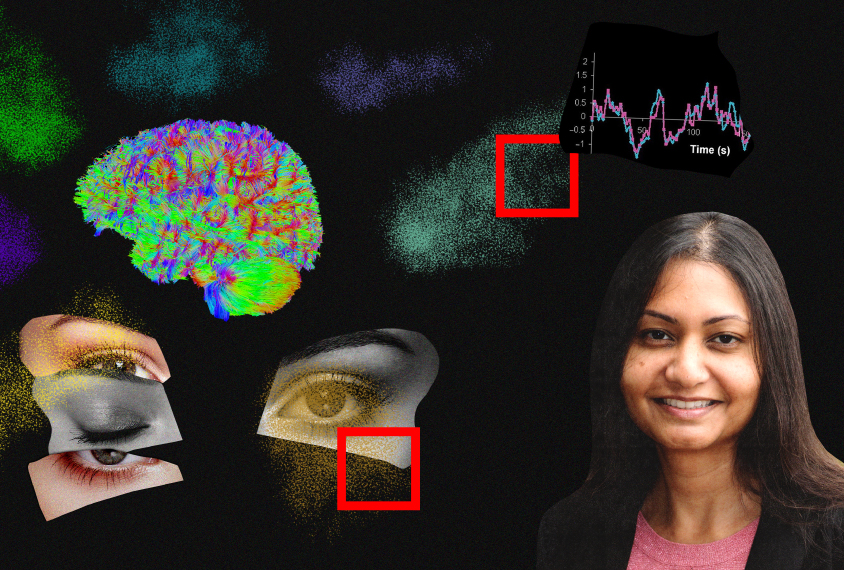Lucina Q. Uddin is professor of psychiatry and biobehavioral sciences at the University of California, Los Angeles. Her research uses tools from network neuroscience to study typical and atypical cognitive and brain development.

Lucina Q. Uddin
Director, Brain Connectivity and Cognition Laboratory, University of California, Los Angeles
Contributing editor, The Transmitter
From this contributor
Name this network: Addressing huge inconsistencies across studies
Entrenched practices have stymied efforts to build a universal taxonomy of functional brain networks. But a new tool to standardize brain-imaging findings could bring us a step closer.

Name this network: Addressing huge inconsistencies across studies
Rethinking ‘noise’ in autism research
Lucina Uddin says researchers should be cautious when analyzing their findings, because 'noisy' data may actually hold important information about brain functioning.
Peer review of methods before study’s onset may benefit science
'Registered reports' — a type of paper in which experimental protocols are reviewed before the study begins — may make neuroscience studies more rigorous and reproducible.

Peer review of methods before study’s onset may benefit science
Explore more from The Transmitter
Machine learning spots neural progenitors in adult human brains
But the finding has not settled the long-standing debate over the existence and extent of neurogenesis during adulthood, says Yale University neuroscientist Juan Arellano.

Machine learning spots neural progenitors in adult human brains
But the finding has not settled the long-standing debate over the existence and extent of neurogenesis during adulthood, says Yale University neuroscientist Juan Arellano.
Xiao-Jing Wang outlines the future of theoretical neuroscience
Wang discusses why he decided the time was right for a new theoretical neuroscience textbook and how bifurcation is a key missing concept in neuroscience explanations.
Xiao-Jing Wang outlines the future of theoretical neuroscience
Wang discusses why he decided the time was right for a new theoretical neuroscience textbook and how bifurcation is a key missing concept in neuroscience explanations.
Memory study sparks debate over statistical methods
Critics of a 2024 Nature paper suggest the authors failed to address the risk of false-positive findings. The authors argue more rigorous methods can result in missed leads.

Memory study sparks debate over statistical methods
Critics of a 2024 Nature paper suggest the authors failed to address the risk of false-positive findings. The authors argue more rigorous methods can result in missed leads.
